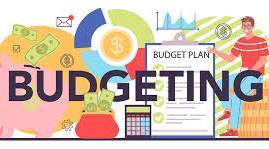10 Common Budgeting Mistakes and How to Avoid Them
Budgeting is one of the most effective ways to manage your money and achieve financial goals. Yet, even with the best intentions, many people fall into common traps that can make it harder to stick to a budget. Are you guilty of any of these mistakes? Here are 10 budgeting pitfalls and how to steer clear of them.
1. Not Tracking Expenses
One of the biggest mistakes is not keeping track of where your money goes. You might have a budget in place, but without monitoring your spending, it’s easy to overspend in certain areas.
Solution:
Use budgeting apps, spreadsheets, or even a notebook to record your daily, weekly, and monthly expenses. This helps you stay aware of your spending patterns.
2. Setting Unrealistic Goals
Many people make the mistake of setting overly ambitious goals, like cutting expenses drastically or saving too much too soon. While it’s great to be motivated, these goals are hard to maintain and often lead to frustration.
Solution:
Set achievable, realistic goals. Gradually reduce expenses or increase savings instead of making dramatic changes all at once.
3. Forgetting About Irregular Expenses
It’s easy to budget for recurring monthly bills like rent, utilities, or groceries. However, irregular expenses such as car repairs, medical bills, or annual subscriptions can throw off your budget if you don’t account for them.
Solution:
Create a “sinking fund†by setting aside small amounts each month for irregular expenses. This helps you prepare for unexpected costs.
4. Not Including Savings in Your Budget
Many people treat savings as an afterthought whatever is left over after spending gets saved. This approach makes it harder to build savings consistently.
Solution:
Pay yourself first. Include a specific amount for savings in your budget before planning other expenses. Set up automatic transfers to your savings account if possible.
5. Relying Too Much on Credit Cards
Credit cards can make it easy to overspend and ignore your budget. If you’re constantly relying on credit to cover expenses, you could be accumulating debt without realizing it.
Solution:
Limit credit card use, especially for nonessential items. Focus on using cash or a debit card for everyday purchases to stay within your budget.
6. Ignoring Small Purchases
Small, seemingly insignificant purchases can add up over time. Daily coffee runs, impulse buys, and subscription services may seem harmless but can derail your budget if left unchecked.
Solution:
Track small purchases just like you would larger expenses. Reevaluate habits like dining out, and consider cutting back to free up more money.
7. Not Adjusting Your Budget Regularly
A static budget won’t always reflect changes in your financial situation, such as a raise, job loss, or new expenses. If you don’t adjust your budget, you could overspend or fail to make the most of your new income.
Solution:
Review and adjust your budget regularly. Make changes when your income increases or your expenses shift to ensure it stays aligned with your financial goals.
8. Overcomplicating the Budget
Some people create overly complex budgets with too many categories, making it difficult to manage and track. The more complicated your budget, the less likely you are to stick with it.
Solution:
Simplify your budget. Focus on the main categories (savings, fixed expenses, discretionary spending) and avoid micromanaging small details unless necessary.
9. Not Having an Emergency Fund
Failing to budget for emergencies can lead to financial stress. Without an emergency fund, you may end up relying on credit cards or loans when unexpected costs arise.
Solution:
Make building an emergency fund a priority. Aim to save at least 3 to 6 months' worth of living expenses to cover unplanned events like job loss or medical emergencies.
10. Giving Up Too Soon
It’s easy to abandon your budget after a setback or if you feel like you’re not making progress fast enough. This can lead to overspending and a lack of financial direction.
Solution:
Stay committed to your budget, even when it feels challenging. Remember, budgeting is a Longterm process, and occasional mistakes are normal. Be patient, and adjust as needed.
In conclusion, budgeting is a powerful tool, but avoiding these common mistakes is essential for staying on track. With a little awareness and finetuning, you can turn your budget into a roadmap for financial success.


